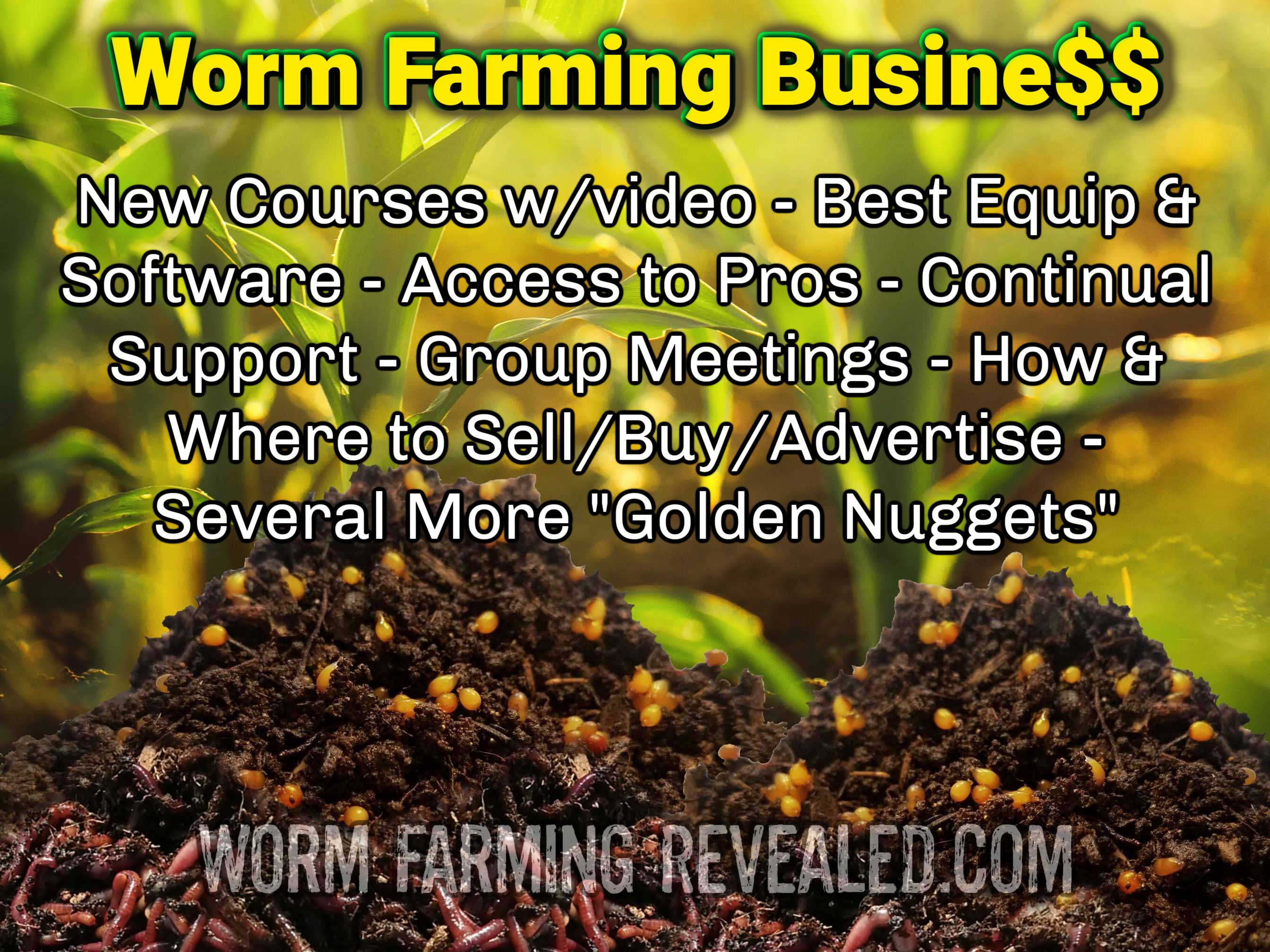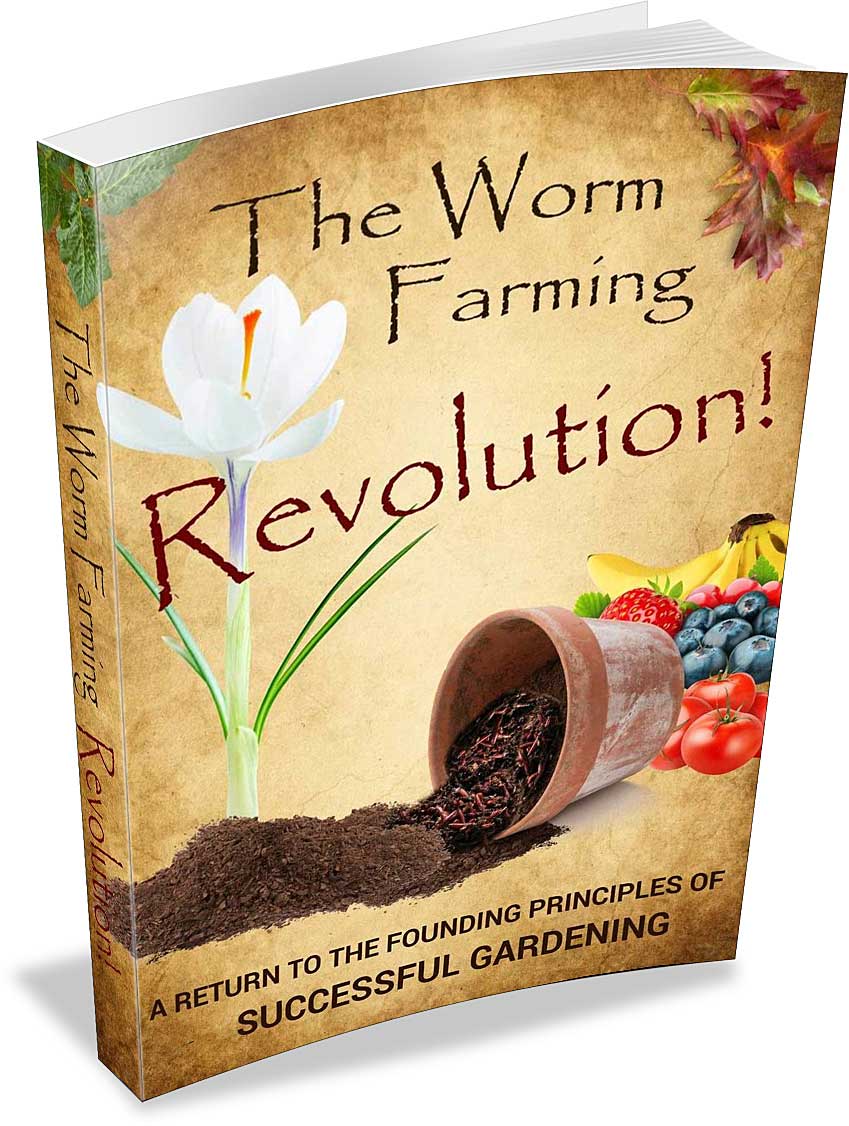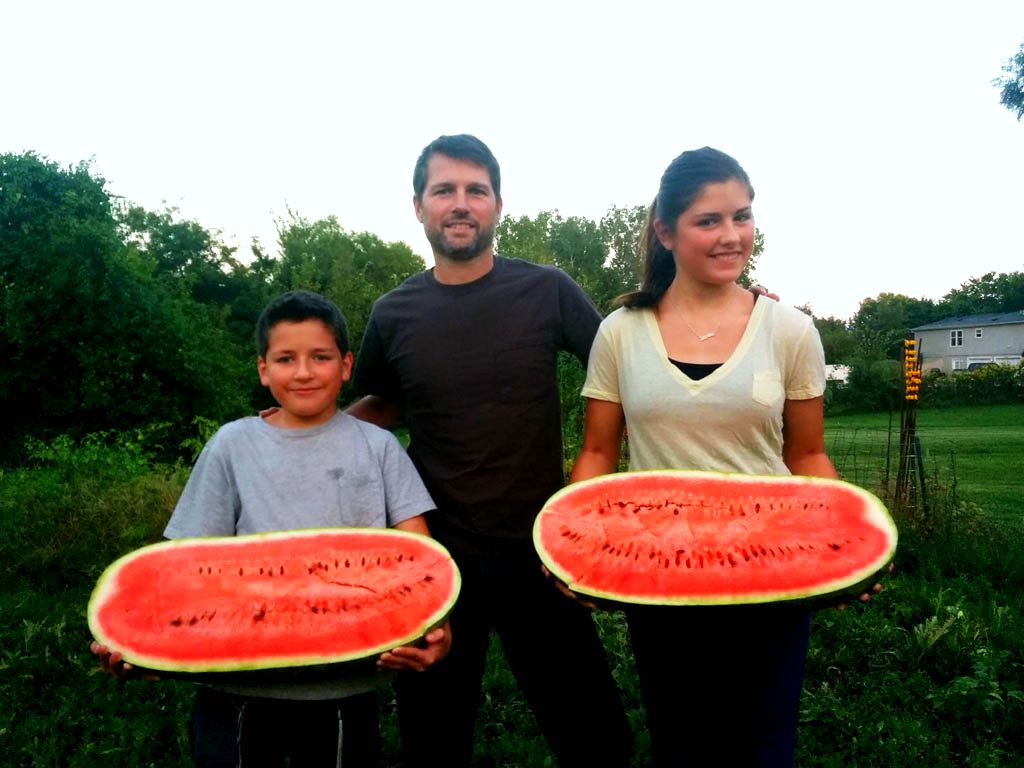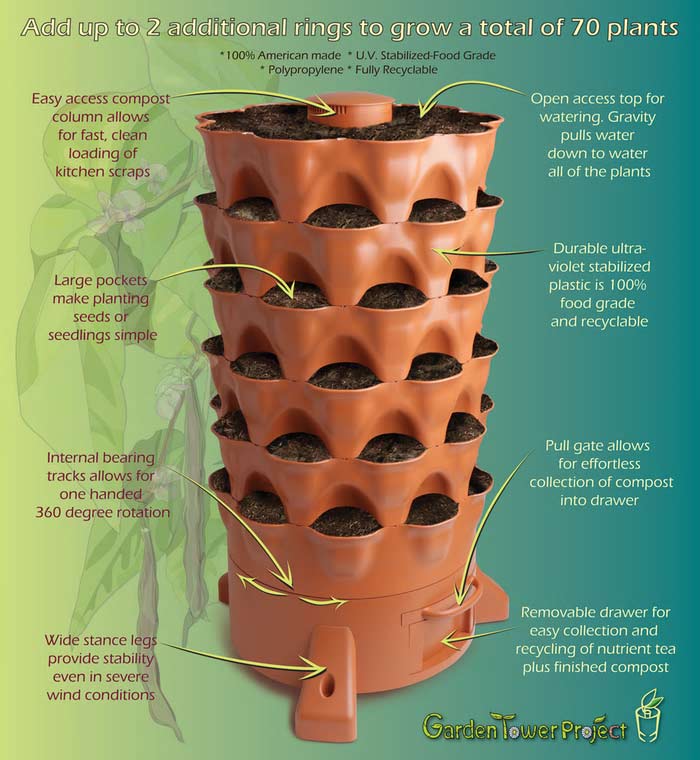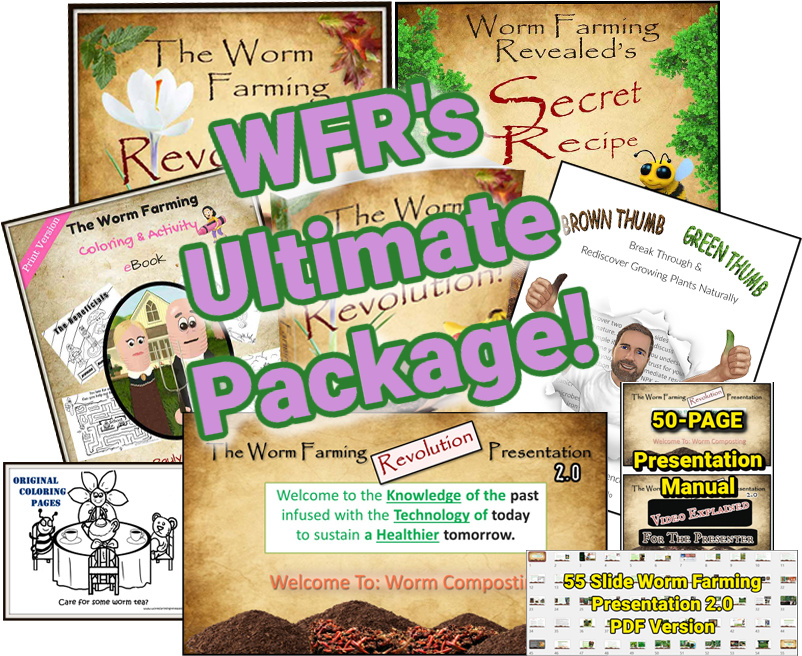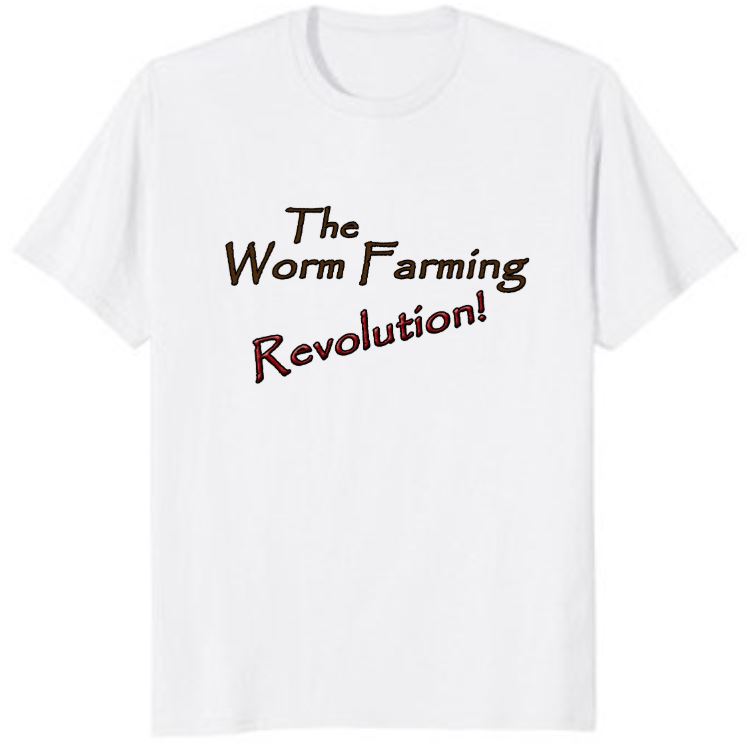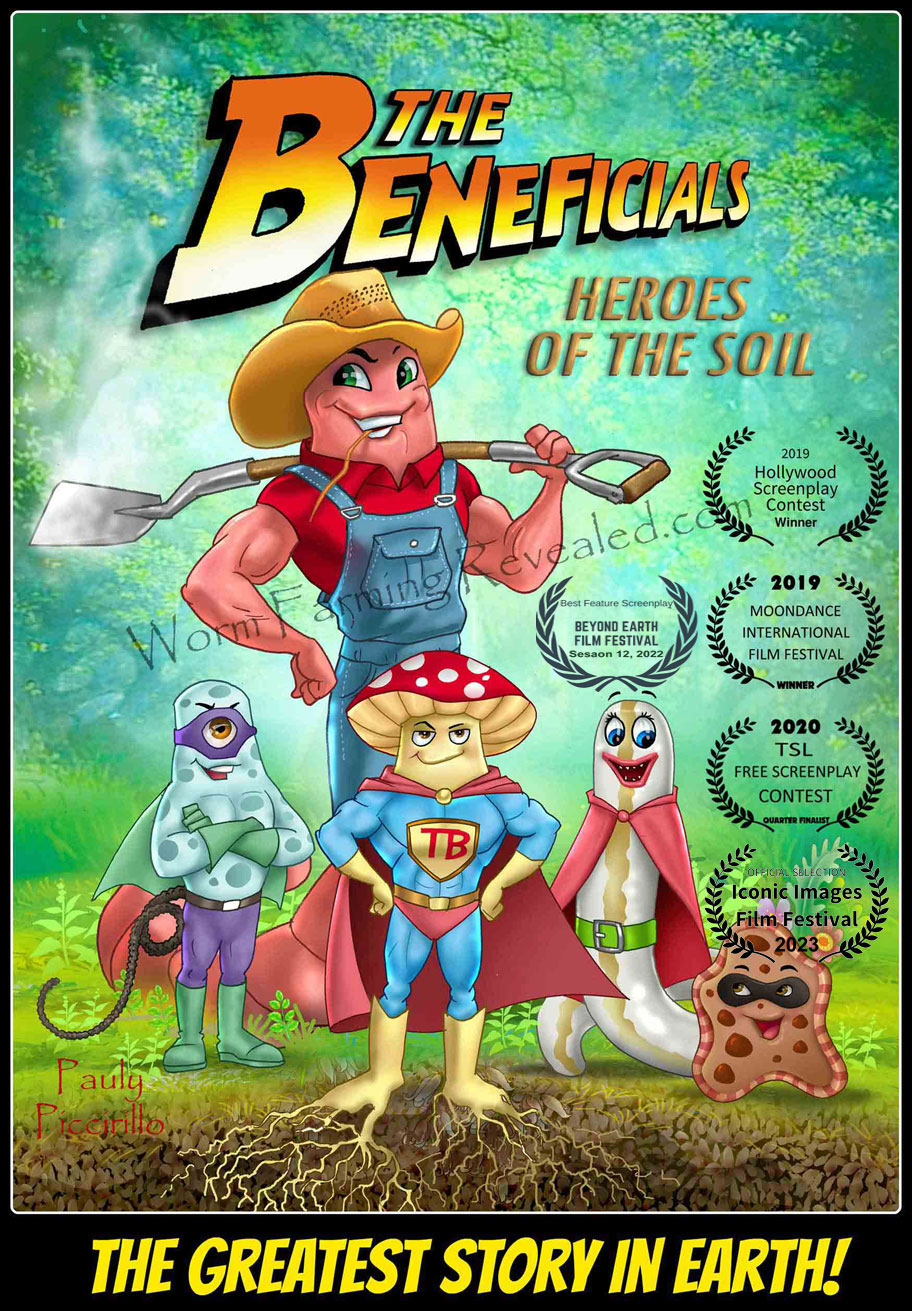Worm Farming Testimonials
These are Worm Farming Testimonials from those who have benefited from the material on this Site. Thank you to those that have written and gave me permission to post your testimonial on WFR.
Your words mean everything to me and inspire and empower me to continue to write more free and helpful information. ~ Pauly
Want to leave a Testimony? Fill out the form below.
Testimonials
Wonderful Website!
We began worm farming about 6 months
before being introduced to your website and all we can say is we wish
it was available when we first got started. You offer solid resources throughout the site and your video showing the DIY Worm Bin proves how easy it can be to get started.
Thanks for all the information, especially the Worm Tea Tutorial; we look forward to giving it a try ourselves.
Darrin and Donna - Kansas
I first acquired my love of red wigglers at a master composter class. we were given a book on the subject. I made my own worm bin, and, carefully following the book's directions, promptly killed my first batch of worms.
Heartbroken but not one to give up easily, I went to the internet and searched all the worm info I could. I now have 4 healthy thriving worm bins. I felt so compelled to pass on this amazing enterprise to as many as I could, splitting up and passing on my own worms in the process.
To ensure my adopted-out pets do not suffer the same sad demise as my first batch, I printed up a set of instructions to make sure the worms stay fat, happy, and provide plenty of offspring.
Your page on worm food is my biggest saving grace. I've included almost all the salient points. I warn my people not to go buy a book, but to stick with the internet.
I print out your web address as my best source and make sure they know to sign up for your e-newsletter.
Wouldn't it be great if, someday, every home had a worm bin? ....and there would no longer be a need for planet-damaging artificial fertilizers.
Christy Gerhardt - Spokane, WA
Very humbling, thank you Christy ~Pauly
With wormfarmingrevealed.com I have learned a lot more about the care and feeding of My Little Fishing Buddies, and they are healthy and happy!
Mark Carlson -Athens, TX
I came across Pauly's website when I was trying to find a project that would be fun, exciting, interesting, and most importantly, REAL to a class of first graders.
Pauly has been extremely helpful and my worms arrived as scheduled. We began by brainstorming what we think we know about worms.
Very interesting:) We then gently observed a few worms and recorded our observations. We will be writing a letter to the cafeteria to ask for vegetable and fruit waste for our worms.
I can't wait to introduce Pauly to my students via his website. My students already know that he cares a lot about worms!
I'm sure that Pauly will answer any questions we have to ensure our success with vermicomposting.
Linda - Accord, NY
I will make this sweet, short and simple.
Husband buys a worm farm. Not thinking, he leaves town to work each month, gone maybe 2 weeks at a time. Wife got to now adopt worms!!
feed/water/pick them out of pee :( Rick finds Poop Scoop newsletter on website and subscribes for Tami. Now I am very happy in knowing what to do and how to take care of them!
learning something new every day! They are not worms, they are my Babies :)
TAMMY JONES - KENNESAW, GA
I'm new to your site, but not new to worm farming. I was not aware of the microbe colonies you speak of, and I'd been using leachate on my outdoor plants.
I do know that the worms have those microbes you mentioned living in their guts, and that the worm castings contain a lot of minerals needed for hungry plants.
I understand that worm castings contain about EIGHT TIMES the nutrients of normal garden soil. Will try using my leachate in my tumbling barrel composters, the contents of which do get aerated and get to temps that may help get rid of the "bad" bugs.
Also, it helps to add a bit of clean sand to the worms you are farming. They help the worms to help break things down to their basic components, much like gravel does in a chicken's gizzard.
Will keep you posted,
Patricia Holman - LOS ANGELES, CA
Pauly,
Thank you so much for the info on worm tea. I didn’t know to put it in bubbling water for 24 hours and add the molasses and liquid kelp (I happen to take that).
I had put the casting In these tea bags and just dropped it into a jug of water. So, thank you so much for sharing this info.
Ann - Spring Hill, KS
Hi, a few months ago I had asked quite a few questions on how to get our Girl Scout troop started in the business of worm poop creation.
I was able to get great correspondence on how to set up, feed, and maintain our bin in our weird El Paso climate.
In El Paso we are fighting nearly 0 humidity, killer sand/wind storms almost daily, freezing conditions in the winter and scorchers in the summer.
We now have some happy worms living in our garage. Thanks a bunch!
Girl Scout Troop 557/Crystal F. El Paso, TX
I've had red worms since Sept. 2012, in my greenhouse. Nothing spectacular, just everyday stuff.
Then Feb 6 we had a fire in the greenhouse. The plastic bin containing the worms burned on one side but the worms had migrated to the other side and safe.
Why? Because of info I got from WFR about putting their "food" in one area if you want to harvest some castings, etc. Consequently, I had put their food on the side away from the fire. Thank you, WFR!!
Daryl Prindle, AZ
You have helped me understand the life cycle of a worm. And the importance of using worms as fertilizer. What a great web site!
Amy Salinas - Olathe, Kansas
My father collected and believed in worms 50 years ago and was a true man of the soil and pioneer!
I have two bins in my garden in South Africa and I have learnt several things from your newsletter: danger of extreme temperatures (you talk of snow and cold which we don't have but a friend has lost two batches of worms from extreme heat); danger of predators (I now realize that lizards and slugs are mortal dangers but used to leave them in the bins) and potential poison of liquid - I water down the tea and leachate and treat it with great respect.
Keep up the good tips and news and although we are not close by, we're not on the moon either!
Yours in worms, Sharon Johnson - Cape Town, Western Cape, South Africa
I appreciated the info on worm leachate and the ratio to still deliver the good microbes. The whole article was interesting and informative.
Also, how to make compost tea was helpful. Thank you for your ongoing education to help us with raising worms.
Thank you,
Anita - Kansas
Pauly and the WFR website have both helped us tremendously with preparing our garden and growing our worm farm.
We started becoming interested in organic gardening about two years ago. We even began a miniature city chicken farm after seeing how Pauly and his family manage their farm and use their compost and the worm castings to keep recycling food and waste with the chickens and worms back into the garden soil.
We learned about DE powder and it's amazing detoxification purposes for people and animals from Pauly as well. So, we began rubbing our chickens with the powder to get the mites off of them and mixing the powder in their food.
The chickens were relieved from pecking through their feathers for mites and we felt better about having healthy poultry.
Pauly's wife taught me how to use DE powder in shakes and bread recipe...I think she even mentioned coffee!
Speaking of coffee, we learned that we could use our coffee grounds with our worm farm and with our garden soil. So, we became fans of Worm Farming Revealed's Face Book page and printed some of the coloring pages for our kids to start learning about worms and composting.
I bought our first sets of starter worms and our worm farm from Pauly even. We've really enjoyed the journey, though we have learned the hard way, from not following the advice on the website a couple times, what-not-to put in the worm farm...acidic type foods.
Good luck to the other gardeners, wormers, and people out there who care about taking care of the earth and our bodies!
Chantel Clock - Baldwin KS
WOW! Thank you Chantel for your support ~Pauly
In 2009 I observed a middle school class recycling fruit waste in your worm bin. The teacher gave me a large handful of red worms. Wow! I was off and running as I kept them in a plastic bucket for a month.
Now I have thousands, so many it is hard to count. I even attended a two day symposium at NCSTATE University where I learned lots. Worms are great producers of castings for the garden. The leaves and flowers double or triple in size as the compost is applied in the spring.
Thank you, Pauly for the
newsletter,
Cindy, South Caroliina
I've just spent the last hour & a half checking-out your website & I really like what I've seen.
I have been vermicomposting since December 2010 & I am truly a vermiphile. I currently maintain a 5 tray stackable plastic worm bin & VB24 flow-through system. I enjoy learning about all things worms/green/organic.
Best regards, John - Indiana
I've enjoyed reading your Worm Farming Guide tremendously. You present it in a way that captures my attention the whole way through. I have worms of my own and I used the castings on my cucumber plant last year.
My yield from one plant was over 100 cucumbers. I will use it on everything now. Thank you so much for this incredibly fun, easy, and most of all natural way of fertilizing.
Jo - long time gardener, Kansas
Return Home from Worm Farming Testimonials
Send Me Your Testimonial
Let me know if I've been a help to you in any way by using the form below.
What Other Visitors Have Said
Click below to see contributions from other visitors to this page...
Pauly taught me how to garden properly Not rated yet
I've done a garden off and on for years. Naturally some years were better than others but I could never seem to get it quite right. Using typical chemical …
First time Work from Not rated yet
I got into Worm farming, when I decided to grow my own vegetables and fruit trees. Tired of buying the artificial vegetables and fruits at the supermarket. …


